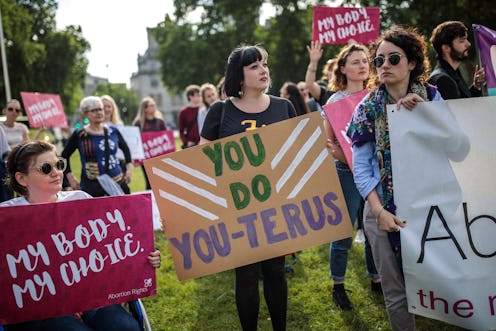
While some U.S. states have taken steps to limit access to reproductive rights, others are bolstering and protecting care. One of them, Maine, passed a law to increase abortion access just this week. The law, signed into place on Monday, will allow abortions to be performed by physician assistants and advanced practice registered nurses, according to a news release issued by the governor's office.
"Allowing qualified and licensed medical professionals to perform abortions will ensure that Maine women, especially those in rural areas, are able to access critical reproductive health care services when and where they need them from qualified providers they know and trust," Maine Gov. Janet Mills said in a statement. "These health care professionals are trained in family planning, counseling, and abortion procedures, the overwhelming majority of which are completed without complications."
Maine now joins ranks with other New England states — including, most recently, Vermont — that have also stepped forward to protect or expand access to abortion care within their borders. The state's governor signed into law a piece of legislation that bans the government from interfering with a pregnant person's decision to have an abortion, the VTDigger reports.
"This legislation affirms what is already allowable in Vermont — protecting reproductive rights and ensuring those decisions remain between a woman and her health care provider," Vermont Gov. Phil Scott said in a statement. "I know this issue can be polarizing, so I appreciate the respectful tone and civility from all sides throughout this discussion.”
The Maine law will officially go into effect in September, The New York Times reports. The governor's office said in a statement that expanding the profile for who is allowed to perform abortion care would likely provide significant relief for women who live in rural areas. Because current law bans nurse practitioners and physician assistants from performing abortions, women who live in the more rural areas of Maine generally have to travel long distances in order to receive care, the governor's office said. The office noted that the ban cites "no medical justification" for the rule.
"By signing this bill into law, Maine is defending the rights of women and taking a step towards equalizing access to care as other states are seeking to undermine, rollback, or outright eliminate these services," Gov. Mills said in a statement.
Abortion rights advocates cheered the law's signing.
"As other states pass laws outlawing abortion, Maine’s leaders have stepped up to protect the health and well-being of individuals and families in our great state," Oamshri Amarasingham, advocacy director for ACLU of Maine, said in a statement. "This law will help eliminate a significant barrier to abortion access in Maine and ensure that each of us can make decisions about our health and our future without political interference."
ThinkProgress reports that, when the law goes into effect, the number of Maine clinics that will be allowed to perform "aspiration abortion" — a common in-office procedure, will rise significantly. Currently, the outlet reports, only three Maine clinics are allowed to perform such a procedure; that number will reportedly rise to as as high as 18.
There's no denying that, as of late, many states are moving to limit abortion access within their borders. Maine and Vermont, however, have opted to draw a sharp legislative contrast.